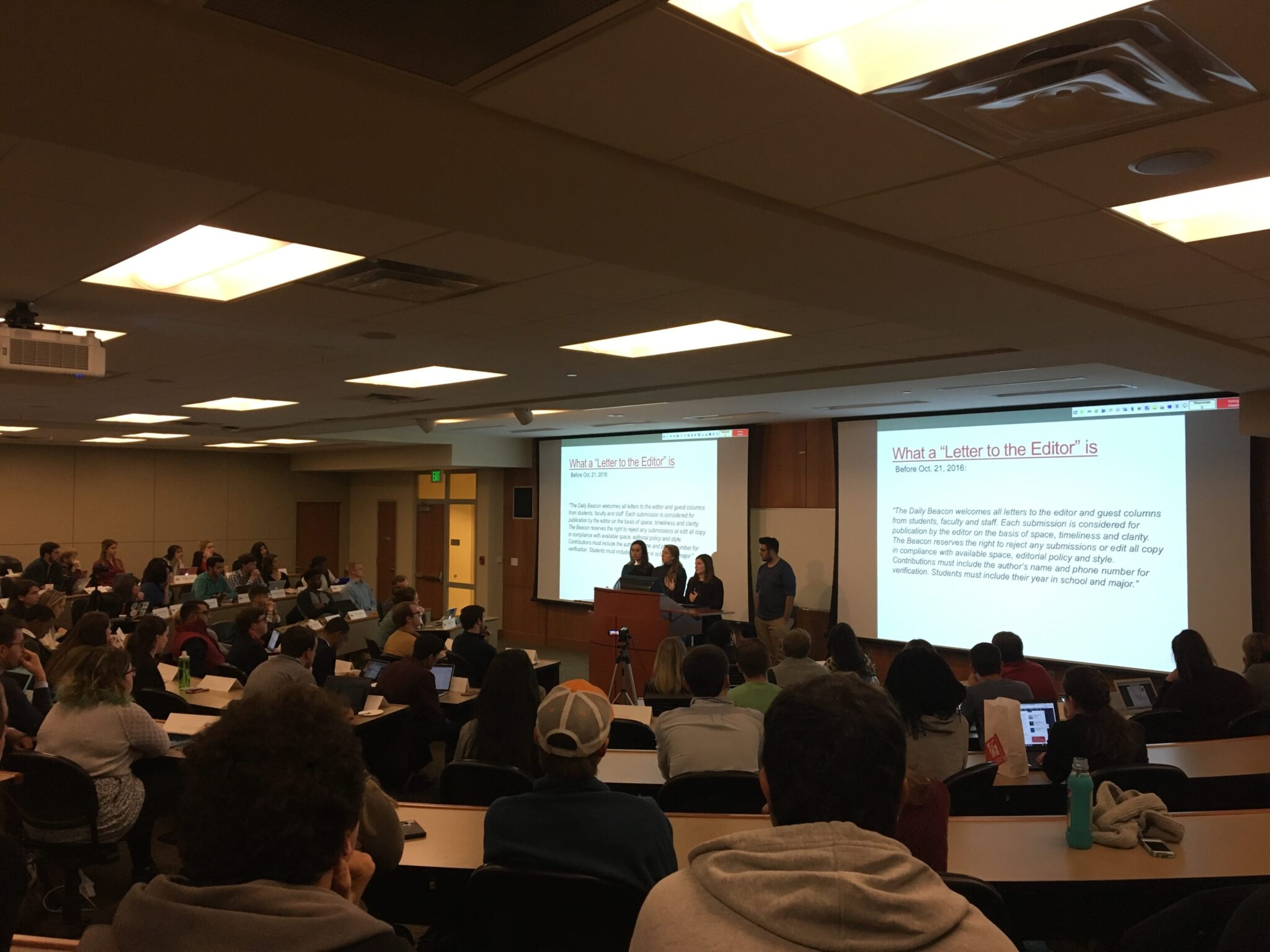SGA bill regarding hate speech and university involvement fails
The Daily Beacon staff answered Senate questions and concerns about the letter to the editor targeting the Muslim population at the meeting on Tuesday, Nov. 15.

The Student Government Association senate met on Tuesday, Nov. 15 for the final session of the semester to discuss a bill regarding The Daily Beacon letter to the editor titled “They’re Not All Like That.”
The bill, titled “A Bill Supporting the Muslim Community and Other Marginalized Groups,” or “SEN-07-17,” condemned the letter to The Daily Beacon. It contained many resolution statements with a single action clause to host “Diversity Listening Sessions” where members of campus communities can have a platform to express themselves directly to members of the SGA.
After substantial debate on the topic, the bill failed.
Three Daily Beacon staff came on behalf of the publication to address their concerns and answer Senate questions.
“We make a daily paper, so we have like 12 opportunities a day to screw up in front of everyone,” Editor-in-Chief Bradi Musil said, “People take their jobs really seriously there and I think that there is so much room for error at the Daily Beacon. We do not take these things lightly. This is not something we have enjoyed or done for clickbait.”
The Daily Beacon’s prior policy was identified as somewhat “loose and vague” compared to their new policy after the letter in question. They now require the letter to be published nowhere else on the internet. In addition, anonymity with letters-to-the-editor is no longer optional, and students must identify themselves in the platform.
Altaf Nanavati, the Daily Beacon’s digital producer, accompanied the editors with a personal take on the issue.
“I am Muslim. And reading that, I’m a human, so I can’t just say that it didn’t hurt,” Nanavati said, “But I’ve been hearing this since middle school. My dad has been hearing this since he came to America.”
Nanavati believes the letter was a valuable lesson that religious discrimination still exists. He said he oftentimes forgets the issue can be so close to home.
“When you go to college you get into your own little bubble. You kind of forget about it. Reading this letter to the editor, yes, it hurt me, but it made me realize that there are people who still think that way,” said Nanavati.
After fielding many questions, the speakers retired to their place in the audience.
Spencer Stires, a finance student not involved in SGA, spoke up in the Open Town Hall forum regarding the role he believes UT should play in matters of free speech.
“What should be done about hate speech?” Stires said, “I want to propose that The University of Tennessee as an official body refrains from taking sides in these disputes. I am in support of these victims and I want them to get the support that they need, but from the students themselves, not from the university.”
Stires went on to ask senate if UT students should be comfortable becoming “moral dependents” who long for support every time they are offended.
The senate continued with the order of business to eventually revisit the bill for a final “no” vote.
Featured image by McKenzie Manning
Edited by Ben Webb

